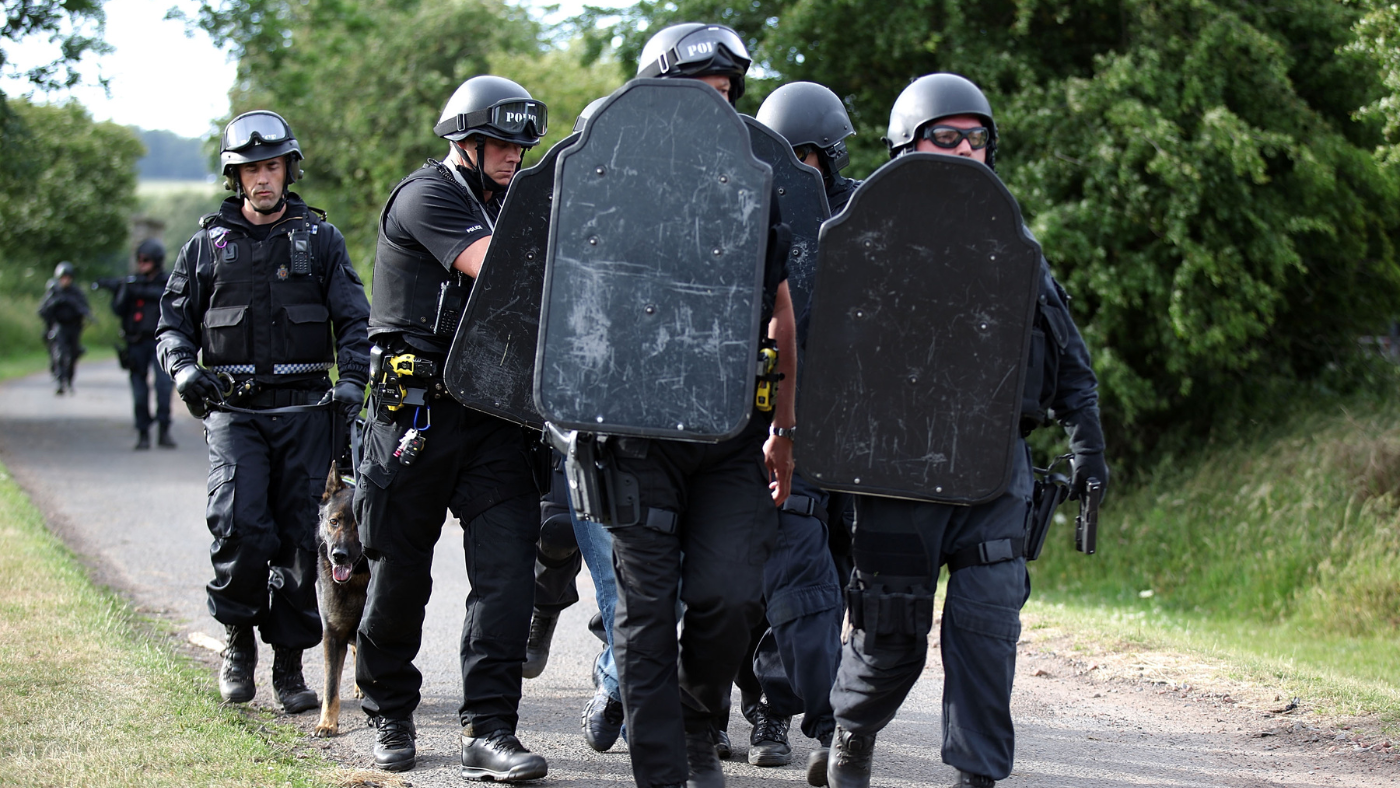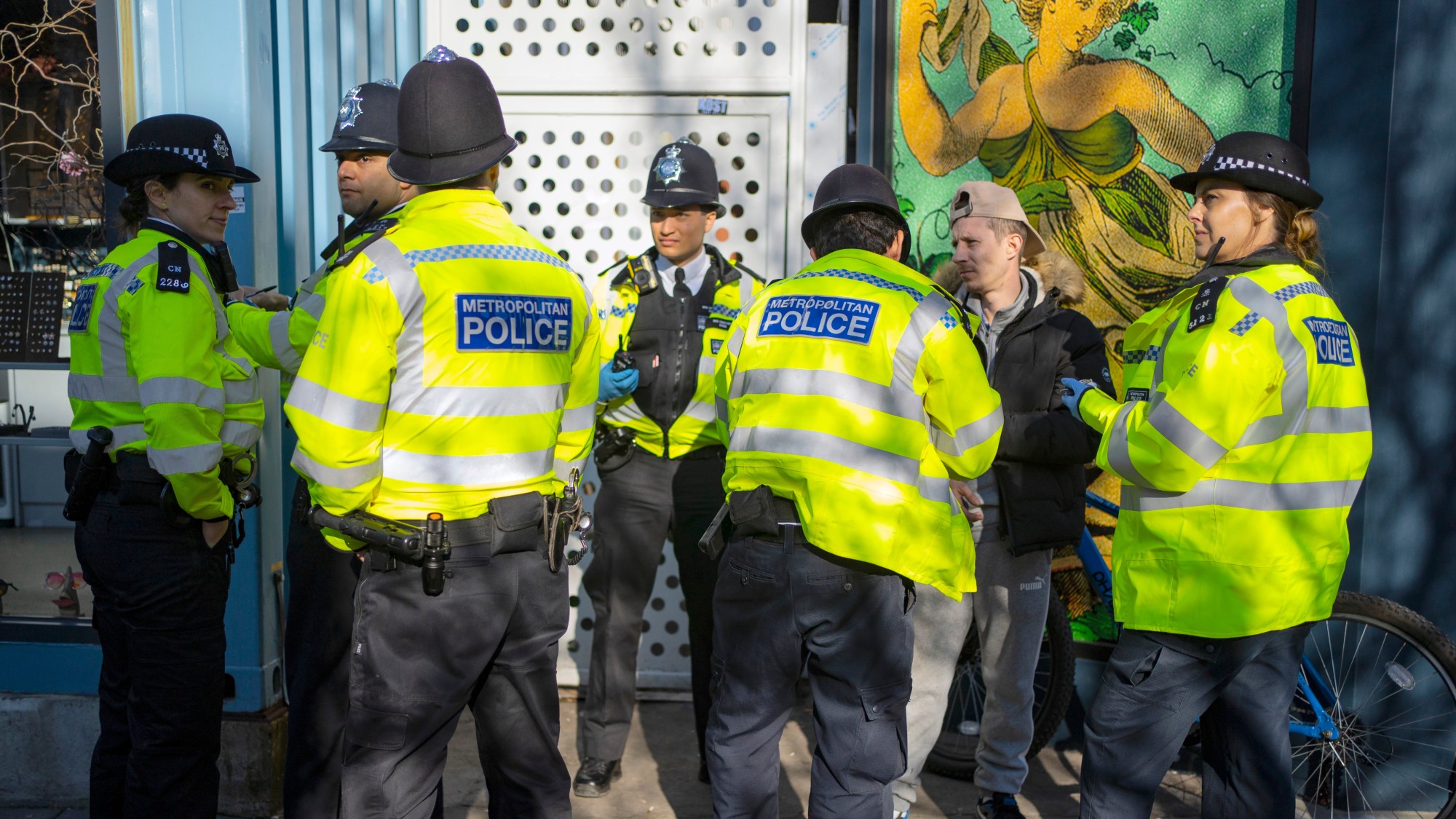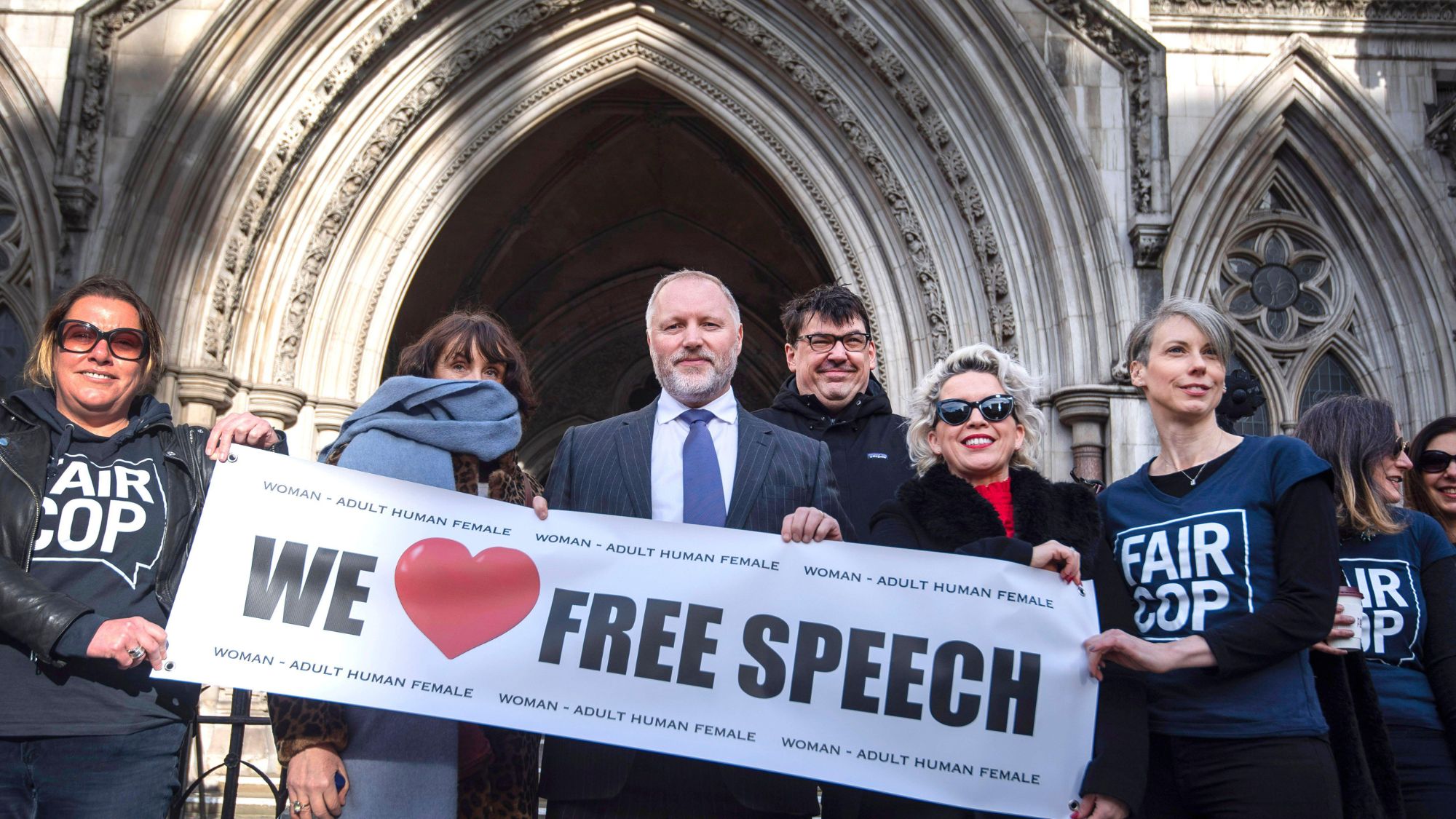How the Raoul Moat manhunt unfolded
Hundreds of police officers were involved in the search for the killer in July 2010

A free daily email with the biggest news stories of the day – and the best features from TheWeek.com
You are now subscribed
Your newsletter sign-up was successful
A week-long manhunt that gripped the UK in July 2010 has been turned into a television drama, bringing Raoul Moat’s violent crimes back to public attention.
Neil Adamson, who was head of Northumbria Police CID when Moat went on the run after shooting three people, told ITV that it was “inevitable” the events would one day become a TV crime drama. “The circumstances were so unique. It was so dramatic and so awful.”
The attacks
Moat was serving an 18-week sentence in Durham Prison in 2010 for assaulting a relative when he found out that his ex-girlfriend Samantha Stobbart had a new partner, Christopher Brown.
The Week
Escape your echo chamber. Get the facts behind the news, plus analysis from multiple perspectives.

Sign up for The Week's Free Newsletters
From our morning news briefing to a weekly Good News Newsletter, get the best of The Week delivered directly to your inbox.
From our morning news briefing to a weekly Good News Newsletter, get the best of The Week delivered directly to your inbox.
Moat told an inmate that he planned to “harm” Stobbart when he was released, the Daily Mail reported. An unpublished report from the Independent Police Complaints Commission (IPCC), the name of the police watchdog at the time, seen by the BBC, suggested the police were informed of Moat’s threat, but the information wasn’t acted upon in time.
Moat was released on 1 July and his “shooting spree” began two days later, said ITV. “Driven by insane jealousy”, the 37-year-old used a “sawn-off shotgun” to fatally shoot 29-year-old Brown outside a house in Gateshead in the early hours of 3 July. He then shot 22-year-old Stobbart, who suffered life-threatening injuries, said the Daily Mirror. Moat and Stobbart’s daughter, Chanel, was asleep in the house at the time.
Within 24 hours, the killer carried out another brutal attack. PC David Rathband was finishing his shift in a patrol car in Newcastle when Moat snuck out of a nearby car and “blasted him twice in the face at point-blank range”, said the Mirror. The police officer survived, but was blinded in both eyes and took his own life in 2012.
After fleeing the scene, the “17-stone bully” then “went on the run” and “vanished into open country”, said the Mirror.
A free daily email with the biggest news stories of the day – and the best features from TheWeek.com
Manhunt
The UK’s “biggest ever manhunt” ensued, said the Mail. Police deployed 160 armed officers in the search for Moat, and “at least 10 armoured anti-terrorist vehicles were shipped over from Northern Ireland”, said the Independent. “Snipers, dogs, helicopters and even an RAF fighter jet were deployed in the search”, and police even “secretly recruited TV survival expert Ray Mears to help track Moat’s movements”.
Following reports of an armed robbery at a chip shop around ten miles from Newcastle on 5 July, a two-mile exclusion zone was set up in Rothbury and local residents were advised not to leave their homes.
On 6 July, Moat sent the police “a chilling warning” in a letter “declaring war on them”, said The Sun. The killer promised that he wouldn’t stop “until I’m dead”. Police appealed to the public for any information about the missing man’s whereabouts, and a £10,000 reward was offered.
Stand-off
After days “living rough” and “taunting police”, Moat was discovered in the National Trust’s Cragside estate on 9 July, said the Mirror. “A tense, hours-long standoff ensued” as Moat held a shotgun “to his neck”, said the Independent. Negotiators “desperately pleaded with the fugitive gunman” to hand himself over, said The Times, and urged him “to think of his children”.
The wanted man “gained a ghoulish cult status after attracting the unlikely interest of football legend Paul Gascoigne”, said the Mail. The former England star had “arrived in a taxi bearing lager, chicken and a fishing rod”, falsely claiming that he knew Moat and could persuade him to hand himself over to police. The police refused to allow him to speak to Moat, who brought the episode to a violent end by shooting himself at 1.15am on 10 July.
Two men who claimed that they had been taken hostage by Moat were arrested during the manhunt. Karl Ness was with Moat when he carried out his attacks on Brown and Stobbart, and his friend Qhuram Awan was driving the car that Moat was in moments before he attacked Rathband. The black Lexus that Awan was driving proved to be the “key to the hunt”, said the Mirror.
After a five-week trial the following year, the two accomplices were given life sentences for their involvement in Moat’s crimes.
Julia O'Driscoll is the engagement editor. She covers UK and world news, as well as writing lifestyle and travel features. She regularly appears on “The Week Unwrapped” podcast, and hosted The Week's short-form documentary podcast, “The Overview”. Julia was previously the content and social media editor at sustainability consultancy Eco-Age, where she interviewed prominent voices in sustainable fashion and climate movements. She has a master's in liberal arts from Bristol University, and spent a year studying at Charles University in Prague.
-
 Why is the Trump administration talking about ‘Western civilization’?
Why is the Trump administration talking about ‘Western civilization’?Talking Points Rubio says Europe, US bonded by religion and ancestry
-
 Quentin Deranque: a student’s death energizes the French far right
Quentin Deranque: a student’s death energizes the French far rightIN THE SPOTLIGHT Reactions to the violent killing of an ultraconservative activist offer a glimpse at the culture wars roiling France ahead of next year’s elections
-
 Secured vs. unsecured loans: how do they differ and which is better?
Secured vs. unsecured loans: how do they differ and which is better?the explainer They are distinguished by the level of risk and the inclusion of collateral
-
 Why have homicide rates reportedly plummeted in the last year?
Why have homicide rates reportedly plummeted in the last year?Today’s Big Question There could be more to the story than politics
-
 How the ‘British FBI’ will work
How the ‘British FBI’ will workThe Explainer New National Police Service to focus on fighting terrorism, fraud and organised crime, freeing up local forces to tackle everyday offences
-
 ‘Stakeknife’: MI5’s man inside the IRA
‘Stakeknife’: MI5’s man inside the IRAThe Explainer Freddie Scappaticci, implicated in 14 murders and 15 abductions during the Troubles, ‘probably cost more lives than he saved’, investigation claims
-
 3 officers killed in Pennsylvania shooting
3 officers killed in Pennsylvania shootingSpeed Read Police did not share the identities of the officers or the slain suspect, nor the motive or the focus of the still-active investigation
-
 Dash: the UK's 'flawed' domestic violence tool
Dash: the UK's 'flawed' domestic violence toolThe Explainer Risk-assessment checklist relied on by police and social services deemed unfit for frontline use
-
 The ethics behind facial recognition vans and policing
The ethics behind facial recognition vans and policingThe Explainer The government is rolling out more live facial recognition technology across England
-
 The Met police's stop and search overhaul
The Met police's stop and search overhaulThe Explainer More than 8,500 Londoners have helped put together a new charter for the controversial practice
-
 NCHIs: the controversy over non-crime hate incidents
NCHIs: the controversy over non-crime hate incidentsThe Explainer Is the policing of non-crime hate incidents an Orwellian outrage or an essential tool of modern law enforcement?